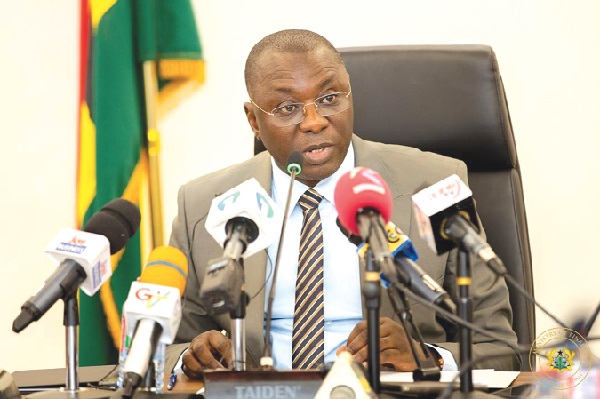
Maintaining fiscal discipline is crucial for the economy
The Minister of Finance, Dr Mohammed Amin Adam, will today, July 23, appear before Parliament to address the country on how the economy has performed in the first half of the year and the projections for the rest of the year.
This the minister will do when he presents the Mid-Year Review of the Budget Statement and Economic Policy of the Government.
The exercise is in pursuance of the Public Financial Management Act, 2016 (Act ). Among other things, he is expected to provide information on how revenue and expenditure has performed in the first half of the year and the country’s current budget deficit figures.
Dr Amin Adam is also expected to provide updates on the implementation of the three-year programme with the International Monetary Fund (IMF) and the country’s external debt restructuring.
Ahead of the review, the ministry has indicated that it will not be introducing new taxes and will not be requesting a supplementary budget.
To us at the Graphic Business, we believe this is a step in the right direction.
Recent data from the Ghana Revenue Authority indicates that revenue for the first half of the year exceeded the target by GH¢138 million.
While the GRA projected to collect GH¢67.91 billion by June this year, it collected GH¢68.04 billion.
With revenues outperforming their target in the first half, the newspaper supports the decision not to introduce additional taxes but urges the ministry to introduce
some additional measures to further boost revenue and meet the full year target of GH¢145.9 billion.
We urge the GRA to maintain the momentum and ensure that eligible taxpayers who are still outside the tax net are roped in to enhance revenue mobilisation.
With revenues performing well in the first half, the key headache will now have to do with expenditure, especially as this year is an election year.
Ghana’s record with election-year spending is nothing to write home about as the country has consistently missed its budget deficit in every election year.
In 2004, in spite of the fact that the country had just benefited from the HIPC initiative which led to a total debt relief of US$3.5 billion, Ghana still recorded a budget deficit of 3.2% of GDP against a target of 1.7 per cent. In 2008, which was another election year, the budget deficit went into double digits and more than double what was budgeted for, recording 11.5 per cent of GDP against a projection of four per cent.
The story was no different in 2012 as the country recorded a budget deficit of 12% against a target of 6.7%. In 2016, despite being under an IMF programme, the government still missed its budget deficit target.
The overall budget deficit on a cash basis was the equivalent of 8.7 per cent of GDP against an IMF programme target of 5.3 per cent of GDP. On a commitment basis, the fiscal deficit was 10.3% of GDP. In 2016, right under the watch of the IMF, the country recorded a budget deficit of 8.7% against a target of 5.3%. In 2020, COVID-19
expenses, coupled with election-year spending, led to the missing of the deficit target.
The overall budget deficit on a cash basis was 11.7% of GDP against a revised target of 11.4 per cent of GDP. In 2024, the government has set a budget deficit target of 5.9 of GDP going into the 2024 elections.
However, it has given assurances that this year will be different as it is determined to maintain fiscal discipline even in the face of pressures to spend to win the elections.
The Graphic Business believes the government’s decision not to request additional resources with improved revenues is a good demonstration of its resolve to stay within the budget deficit target for the year.
While commending the government for its resolve to stay within the approved budget, we also urge that it introduces additional measures to contain expenditure.